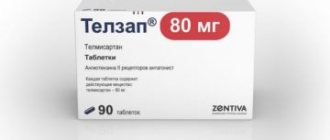Varicose veins are a real disaster, especially common among the “beautiful half”. According to statistics, about 57% of people with varicose veins risk dying within ten years from thromboembolism or oncology. And, as if this were not enough, another problem fell on their heads - the inability to protect themselves from unwanted pregnancy using means available to other women who do not suffer from varicose veins. We are talking about hormonal contraceptives for oral administration, or pills.
Hormonal contraception has a wide range of means:
- Tablet preparations with gestagens and estrogens;
- Implants for insertion under the skin;
- Contraceptive patches;
- Vaginal rings;
- Products used immediately after coitus.
All these methods are aimed at avoiding unwanted pregnancy, but affect the female nature in different ways: some reduce the density of the uterine endometrium, preventing sufficient blood supply to tissues important for conception, others make the uterine mucus more viscous, making it difficult for sperm to move to the ovaries, or inhibit the function of egg maturation, preventing ovulation.
Hormonal oral contraceptives
Hormonal contraceptives of the latest generations guarantee almost one hundred percent protection against unplanned pregnancy. And it is not surprising that the majority of healthy women prefer this method of contraception, which allows them to have an active sex life without fear of consequences and enjoy sexual relations on an equal basis with a man.
In addition, these drugs have a number of side effects:
- Eliminates the negative manifestations of premenstrual syndrome - discomfort in the chest and headache, tearfulness and irritability;
- Regulate the lunar cycle of menstruation;
- Reduce the amount of blood loss during menstruation;
- Reduce the intensity of dysmenorrhea: pain in the lower abdomen, nausea, loss of consciousness;
- In most cases, the occurrence of an ectopic pregnancy is excluded;
- Prevents the occurrence and development of ovarian cysts and tumors and inflammations of various nature on the appendages and in the uterine cavity.
The high content of female sex hormones in OCs also has a positive effect on manifestations associated with an excess of male sex hormones in some women, such as: unwanted hair growth on the body or, conversely, hair loss on the head, acne and others.
But all this is relevant only for women who do not suffer from diseases of the vascular system. For those a little less fortunate, some hormonal contraceptives can be a death sentence.
Feedback from the victim Tatyana: “Girls! After OK, I almost gave my soul to God! Serious varicose veins, plus thrombosis, resulting in pulmonary embolism, left lung infarction, in general, I don’t know how I survived! Few people survive this diagnosis. Moreover, I warned the gynecologist about my predisposition and took a test for prothrombin levels, but she still prescribed me an OC with a higher content. And after this I have intensive care and a complete apocalypse! I don't recommend it to anyone! »
Contraindications for taking OK
As you can see, even timely
Seeing a doctor does not always protect you from taking inappropriate medications with negative consequences, let alone choosing one remedy or another on your own. Moreover, if a woman has a history of varicose veins and, as a rule, a predisposition to blood clots, that is, to thrombosis.
Thrombosis and varicose veins are diseases of the vascular system, and although their manifestations and consequences are different, varicose veins, due to weakening and pathological deformation of the venous vessels, slow down blood flow and, thus, can contribute to the development of thrombosis.
Thrombosis is the formation of thickened blood, lumps called thrombi, which pose a great danger to human health and life. Such a clot, blocking a vessel, can cause hemorrhage in the brain, atrophy of a part of the brain that has ceased to be supplied with blood, or death, in the case of a very large blood clot that has entered a vital artery.
What to do
Imagine yourself in the shoes of a young woman who struggles with swelling every day, suffers from buzzing, bloating and heaviness in her legs, watches with horror the appearance of more and more spider veins and purple worms on her legs and thinks about what to wear to cover her legs and stay feminine and attractive. And then there are the contraceptives, recommended by a friend, which have a strange effect on your well-being. There is a way out of this labyrinth of alternating hopes and disappointments - a well-educated, caring gynecologist.
Only good, responsible
a specialist, having carefully studied the history and all the characteristics of the patient, will be able to offer a safe method of contraception in a given situation. If it is not possible to see a doctor, you can use alternative methods of contraception as a temporary replacement:
- Chemical contraceptives;
- Unfinished sexual intercourse;
- Intrauterine device;
- Temperature method;
- Calendar;
- Condoms.
Chemical contraceptives
Unfinished sexual intercourse
Intrauterine device
Temperature method
Calendar
Condoms
Alternative to hormonal drugs
Since oral contraceptives are not the best option for varicose veins, it is necessary to use, albeit less convenient, but safe for health, methods of protection. The use of condoms, non-hormonal uterine devices, caps and chemical contact contraception (gels, creams, suppositories) is recommended.
Hormone-based contraceptives can aggravate the clinical manifestations of venous diseases and accelerate their development. Therefore, they can only be used as prescribed by a gynecologist and after consultation with a phlebologist.
Features of contraception
As already noted, when taking certain medications to prevent pregnancy, women may experience increased symptoms of varicose veins due to increased levels of certain female hormones in the blood, which have the following negative effects:
- They retain excess fluid in the tissues, increasing the swelling that accompanies most varicose veins;
- Increase blood clotting, leading to a slowdown in blood flow due to the density of the blood mass and the possibility of blood clots;
- They reduce the elasticity of the walls of blood vessels, which leads to stretching and fragility of blood vessels.
By neglecting regular medical supervision, women who take oral contraceptives for a long time can cause great harm to their health by underestimating the symptoms of a developing or worsening disease. In particularly advanced cases, you can get pulmonary embolism, with all the ensuing consequences.
If a woman or her immediate family has ever suffered from thrombophlebitis, then taking oral contraceptives such as: Duphaston, Utrozhestan, Jess and the like are strictly prohibited for use by those at risk for varicose veins and thrombophlebitis.
Effect of hormonal contraceptives
Contraceptives for varicose veins should be chosen very carefully, because they can cause much more harm to the body than benefit, in this case, protection from unwanted pregnancy.
With regular use of oral contraceptives, a woman’s hormonal background changes dramatically, and the level of sex hormones artificially increases several times.
This phenomenon can stimulate the formation of blood clots in the veins and lead to varicose veins. But if the disease has already been diagnosed, then you should not despair and give up oral contraception, because the mere presence of the disease is not a contraindication to taking this type of pill.
Only the presence of thrombophlebitis and deep vein thrombosis can become an obstacle to the use of hormonal drugs. The presence of these diseases is a clear contraindication, non-compliance with which can lead to the displacement of blood clots (blood clots).
This process can be irreversible and can cause blockage of the veins, and if it gets into the pulmonary artery, it can be fatal.
The use of certain types of contraceptives leads to a negative effect on the vascular walls and leads to blood thickening.
Gradation of oral contraceptives
Oral contraceptive drugs are divided into two large groups:
Combined oral contraceptives (COCs)
The tablets contain two artificial analogues of the hormones progesterone and ethinyl estradiol or estrogen. These drugs, in turn, are divided into:
- Monophasic, in which the dosage of hormonal substances is constant throughout the month;
- Triphasic, containing three different combinations of hormones, changing in accordance with the phases of the menstrual cycle.
Monophasic
Three-phase
Plus, there is a gradation based on the quantitative content of working substances in the contraceptive. At the same time, one must understand that all COC drugs equally reliably stop the ovulation process, that is, they equally protect against unplanned conception. Progestogen is present in equal proportions in all products, namely it is an ovulation blocker. Estrogens have the function of normalizing the menstrual cycle and are added in different quantities to different-dose contraceptives.
Microdosed group
They are used by young women who are sexually active and do not yet have children. These contraceptives have mild side effects and do not have a negative impact on the subsequent period when the woman decides to become pregnant and stops taking it. An ideal choice for those who are starting to take hormonal drugs for the first time, and for women after 35 years of age, throughout their sexually active life.
Low dose group
Janine, Klayra, Yarina and Diane 35, Chloe, Demoulin, Bellara, Bellune 35, Marvelon, Rigevidon, Microgilon, Regulon, Miniziston, Silhouette, Silest, Tri-Mercy, Midiana, Femoden... They contain enough substances that completely block ovulation and preventing spotting of blood between menstruation. And, at the same time, they have a much lesser effect on vascular tone, which makes them acceptable for use by women susceptible to varicose veins.
How to minimize negative impacts
When a woman predisposed to varicose veins and thrombosis decides to use oral contraception, she should know some rules of life in such a situation. Since hormonal drugs are characterized by a large number of side effects, which usually manifest themselves quite quickly. A woman should be very attentive to all sensations and external manifestations in the first six months of use.
Along with taking OK, it is mandatory to:
- Be observed by a gynecologist and periodically visit a phlebologist;
- Take blood thinners and venotonics daily;
- Take a comprehensive approach to the prevention and, if necessary, treatment of varicose veins;
- Take courses of drugs that counteract varicose veins.
Aspirin-cardio is a blood thinning drug recommended by phlebologists. As an additional remedy, you can use Troxerutin in capsules and vein-tonic gels of local action: Lyoton and Venolife. Ascorutin has proven itself well, reducing microvascular damage and nourishing the body with vitamins C and P, or the tableted preparations Flebodia and Venarus.
Aspirin-cardio
Troxerutin capsules
Troxerutin gel
Lyoton
Venolife
Askorutin
Phlebodia
Venarus
If the veins in the legs become swollen, pain or heaviness in the legs that has not been previously observed, or spider veins in various areas occur, immediately stop taking the OC and consult a doctor. It is not recommended to use any of the above drugs on your own.
What contraceptives can be taken for varicose veins?
For vein diseases, it is recommended to take mini-pill medications with minimal hormonal content. These include “Continuin” and “Ovret”. Nuvaring vaginal rings are considered a good alternative, as they have a local effect and do not affect the veins. If necessary, it is possible to prescribe combined agents. Microdosages prevent pregnancy and have minimal effects on blood vessels (“Yarina”). A drug such as “Jess” for varicose veins is used only on the recommendation of a doctor. Tablets with low hormone content are used with extreme caution; this group includes “Janine” and “Femoden”. Medium-dose medications can only be used by women who have given birth (“Triziston”). Drugs such as Femoston and Visanne cannot be used if there is a risk of thrombosis and impaired blood flow. Taking Visanne is strictly controlled by a doctor.











